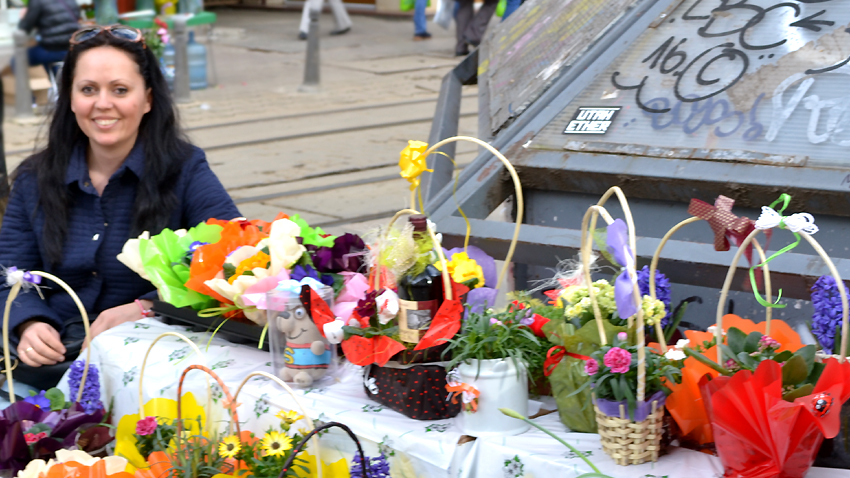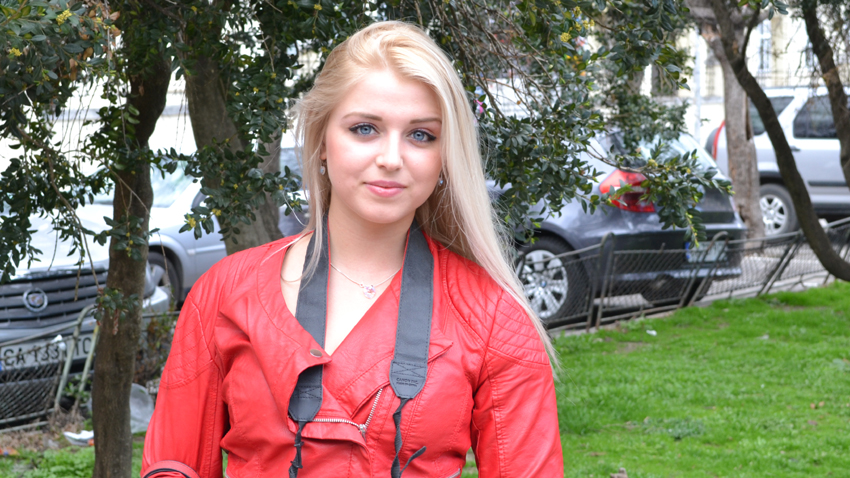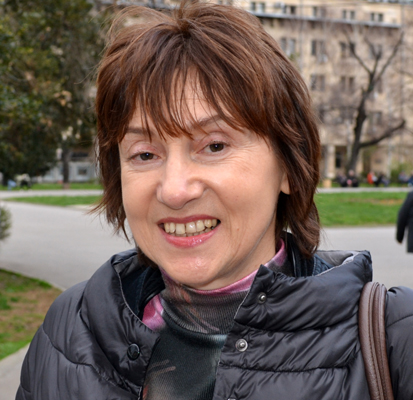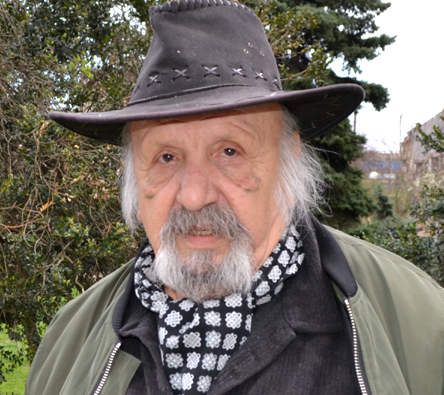Sofia streets are decorated with flowers and even the morose faces of the people selling them do not spoil the festive atmosphere. Children carry bouquets to school, men of all ages throw doubtful glance at the flowers, and some ladies obviously have made an effort to look good more than usual. Suddenly I realize what produces this sweet floral parade - it is March 8 - Women's Day and Mother's Day. So far, the sidewalks were colored in red and white because of the numerous street booths overflowing with martenitsas, and now everything is much more colorful. I see the smiles on most faces, but notice also that for many people this makes no difference. Obviously it is a feast for some and an ordinary workday for others, but just to be sure, I decided to stop several people and ask them whether they are "for" or "against" this 8-March fever and why. First, I stop at Ronnie who this year helps some friends and has become a seller of flowers:

"Only two men bought flowers. Mainly women buy - for the teachers of their children and for themselves. I would like to receive an intangible gift. I want to receive a memory, an emotion, something that I can go back to and feel joy," she said and added, “We seem to have crushed men. The majority of strong women these days are alone. Men seem to lose their individuality around strong women. I think they do not feel the need to give them flowers because they do not know how their partner will react. She might feel offended as if the man considers her weak”. Ronnie personally supports the feast. She has noticed that men are looking for the cheapest and most affordable gift.
Then Antoaneta Nikolova came over me, ashamed of the camera lens, but still she told me how the day was celebrated back in socialist times:
"It was mandatory for men to give flowers, a in the workplace, especially bosses. They gathered to greet us, to give us flowers, they let us leave early to celebrate. There was a selected program on TV and congratulations running all day long. There was a festive mood everywhere". She enjoys the holiday and shares it with friends.
Blond-haired Rossina spoke little but clear:

"A simple gesture is enough, even if it's only a flower, or at least ... breakfast in bed as a sign of affection."
 Former teacher Magdalina Zaharieva intrigued me with a beaming smile, but also with her opinion of Bulgarian men.
Former teacher Magdalina Zaharieva intrigued me with a beaming smile, but also with her opinion of Bulgarian men.
"This is just a date on the calendar, but being loaded with human thoughts to be the Women's Day is not bad, but the woman should be respected all the time. A one-day celebration and then a rude attitude is not okay. Bulgarian men have no idea what a real gentlemanly attitude looks like. It is no accident Bulgarian girls admire foreigners. Where there is respect, families still exist. Currently there are almost no families, and as the small cell does not exist, there are no state bodies, no statehood. Everything is connected."
 I could not help noticing the approaching Vasko Jekov, newspaper editor, actor, writer and member of the Union of Bulgarian Writers and the Union of Bulgarian Artists. On the subject he said:
I could not help noticing the approaching Vasko Jekov, newspaper editor, actor, writer and member of the Union of Bulgarian Writers and the Union of Bulgarian Artists. On the subject he said:
"If the mother and the woman did not exist, we would not have a world. This holiday is neither communist, nor ideological. The fact that some people brought a political nuance has managed to ruin the beautiful celebration of respect and attention. Respect must be practiced every day. Out tense daily routine makes us deny things rather than be joyful. The holiday is meant to stay forever. In celebration lives the human soul and in everyday life - man's working skills."
Opinions varied, but I learned two main things from Sofia residents - that respect for the woman and the mother should be shown every day, not just on one day and that the independence of women in Bulgarian society is so strong that the expression "the fair sex" has lost some of its meaning. According to many people, those women deftly get away from their role of housewives and ambitiously become the dominant sex, secretly pushing men away.
English Rossitsa Petcova
Photos: Louiza LazarovaWho said Bulgarians were grumpy pessimists? Take a stroll through Sofia's Christmas bazaars and meet the cheerful crowd. The festive decorations, music, merry-go-rounds and stalls overflowing with treats and handmade souvenirs can make the gloomiest..
Bulgarian studies are highly valued at the Bogdan Khmelnitsky State Pedagogical University in the Ukrainian city of Melitopol. So it comes as no surprise that the university is hosting the latest edition of the International Bulgarian Studies Readings,..
"You say you are Bulgarian, but you do not know Bulgarian" – this reproach from officials in Bulgaria has been faced by quite a few by our compatriots from the historical Bulgarian communities around the world. One of them is Bledar Alterziu from..
Who said Bulgarians were grumpy pessimists? Take a stroll through Sofia's Christmas bazaars and meet the cheerful crowd. The festive decorations, music,..

+359 2 9336 661
